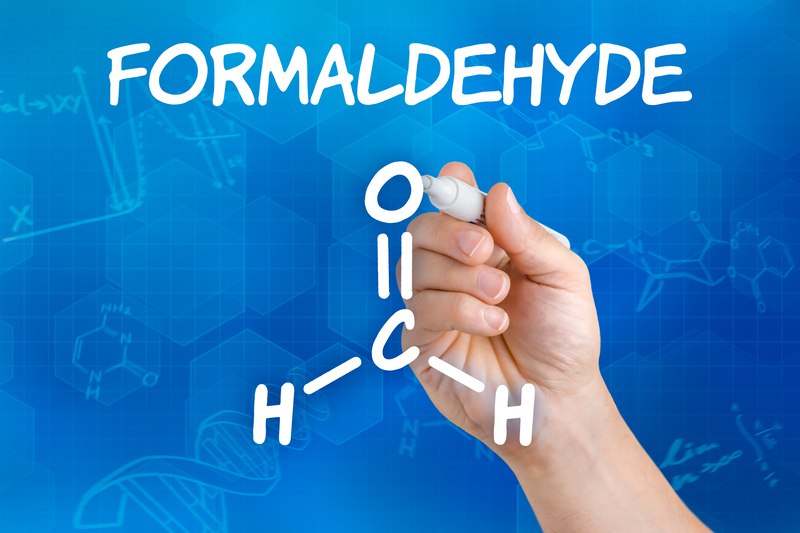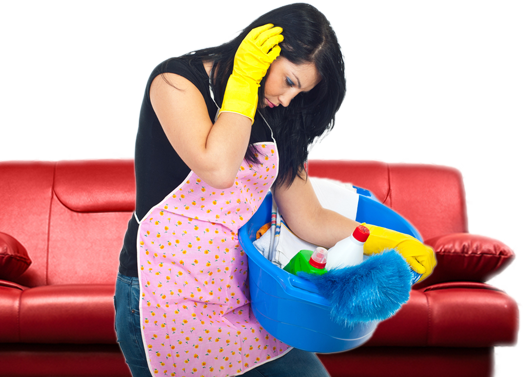Experience a Pet Odor-Free Home with These Tips
Posted on 07/10/2025
For every pet lover, nothing compares to the companionship, love, and joy pets bring into our lives. Sadly, they can also introduce a less pleasant feature--pet odors. Whether you have a spirited pup, a fluffy feline, or even a small critter, maintaining a pet odor-free home can sometimes seem overwhelming. Achieving a fresh-smelling environment is possible with the right strategies. Start living in a fresh, inviting, and healthy atmosphere by following these comprehensive, tried-and-tested tips.
Why Your Home Might Have Pet Odors
Understanding the root cause of pet odors is crucial. Pet smells are usually caused by various factors, such as:
- Urine accidents: Even small dribbles from dogs, cats, or other pets can lead to strong, lingering smells.
- Pet dander and hair: Shedding fur and skin flakes harbor bacteria that create odors.
- Dirty paws and fur: Pets track in soil, mud, and allergens that add to the overall odor profile.
- Poorly maintained litter boxes and cages: Neglecting regular cleaning will definitely cause unpleasant aromas.
- Unwashed bedding, toys, and accessories: Fabrics and plastics soak up smells from your pets.
Each source requires a targeted approach to guarantee a completely odor-free home with pets.

Establish a Consistent Pet Hygiene Routine
Maintaining your pet's hygiene is the backbone of any odor-elimination strategy. Clean and healthy pets smell better, and so do your living spaces.
Regular Baths
- Bathe your dogs and other bath-friendly pets at least once a month--more often for active or long-haired breeds.
- Use pet-specific shampoos to prevent skin irritation and maximize odor-neutralizing benefits.
- Always dry pets thoroughly to prevent musty "wet dog" smells.
Grooming and Brushing
- Brush your pet weekly to minimize fur build-up, which can trap odor-causing bacteria.
- Regular brushing helps distribute natural oils, keeping the coat less prone to smells.
Dental Care
- Brush your pet's teeth several times a week or use dental treats--bad breath is a huge contributor to pet odors!
Paw and Ear Cleaning
- Frequently clean paws to remove dirt, allergens, and bacteria before your pet enters the home.
- Gently wipe your pet's ears with vet-approved solutions to avoid waxy, yeasty smells.
Routine Cleaning for a Pet Odor-Free House
The largest impact on a pet odor-free house comes from a strict cleaning regimen. Daily, weekly, and monthly cleaning helps you stay ahead of any problems.
Daily Tasks
- Scoop litter boxes at least once a day; for multiple cats, consider twice-daily scooping.
- Spot clean any visible accidents immediately with enzyme-based cleaners.
- Vacuum high-traffic areas to pick up fur, dander, and debris.
Weekly Tasks
- Wash pet bedding, blankets, and plush toys in hot water.
- Disinfect hard pet toys and feeding bowls with warm, soapy water.
- Deep-vacuum carpets, upholstery, and curtains--use a vacuum with HEPA filtration for best results.
- Steam-clean area rugs and pet "hot spots" if possible.
Monthly or Bi-Monthly Tasks
- Launder slipcovers, decorative throws, and pillow covers.
- Shampoo carpets and upholstery using pet-friendly formulas.
- Replace or deep-clean air filters in your HVAC or air purifier.
Powerful Odor-Fighting Products
Some cleaning products work better than others when combatting pet-related odors. Effective options include:
- Enzymatic Cleaners: These break down organic messes--especially urine--at the molecular level, ensuring lasting freshness.
- Baking Soda: A natural, gentle deodorizer for carpets and upholstery.
- Vinegar: Use diluted white vinegar to neutralize stubborn smells, but test first on fabrics!
- Activated Charcoal: Traps odors in the air and in containers (litter boxes, for example).
- Air Purifiers: HEPA and carbon filters can significantly reduce airborne pet smells and allergens.
Be cautious when using commercial sprays or plug-in deodorizers around pets--always select pet-safe products. If in doubt, check with your veterinarian.
How to Keep Your Floors and Carpets Smelling Fresh
Carpets and floors are magnets for pet odors, especially in homes with high activity. Here's how to prevent dog smells and keep your floors immaculate:
- Use washable rugs: Place them in entryways and common pet play zones for easy laundering.
- Employ a shoe-and-paw cleaning station: Wipe pets' feet before they enter main living spaces.
- Vacuum regularly: Daily for heavy shedders, several times a week otherwise. Don't forget to clean under furniture.
- Sprinkle baking soda: Let it sit for 15-30 minutes on carpets, then vacuum up to neutralize scents.
- Spot-clean accidents: Immediately blot and treat with enzymatic solution for best results.
- Consider floor-friendly pet mats or pads: These catch dirt before it hits the floor and are easily washed.
Mastering Litter Box Maintenance for Cat Odor-Free Homes
For those with cats, litter box odors are a common and persistent issue. Use these expert recommendations for a cat odor-free home:
- Scoop daily: Never allow waste to build up.
- Full box change: Completely empty and wash the box every 1-2 weeks.
- High-quality litter: Use clumping, odor-absorbing litters (like silica, crystal, or activated charcoal blends).
- Multiple boxes: Follow the "number of cats plus one" rule to prevent overcrowding and excessive odor.
- Box placement: Choose a well-ventilated but private area, away from busy living spaces.
Pro Tip: Add a thin layer of baking soda under litter to enhance odor control without irritating sensitive cat noses.
Transform the Air: Ventilation and Deodorizing Solutions
Even the cleanest homes benefit from improved air circulation, making rooms feel fresh and welcoming.
Boost Natural Airflow
- Open windows for 30 minutes each day to let in fresh air.
- Use fans or ceiling fans to circulate air.
Dehumidify
- High humidity promotes bacteria and mold, making odors worse. Employ a dehumidifier to maintain optimal levels (30-50% humidity).
Essential Oil Diffusers
- Select pet-safe oils like lavender or chamomile in small doses. Avoid toxic oils (eucalyptus, tea tree, etc.).
Air Purifiers
- Choose a model with both HEPA and activated carbon filters for best odor and allergen removal. Change filters according to the manufacturer's instructions.
Wash and Replace Pet Linens and Accessories Frequently
Fabric items are notorious for absorbing and holding on to: pet hair, dander, bacteria, and all the smells that come with them. Here's how to keep them fresh:
- Wash pet beds and blankets weekly: Use hot water and a gentle, fragrance-free detergent.
- Rotate pillows and soft toys: Substitute clean ones while others are in the wash.
- Sanitize collars, leashes, and clothing: Rinse with soapy water or a diluted vinegar solution and air-dry.
- Replace items as needed: If a particular accessory can't be cleaned or always smells bad, invest in a new one.
Address Accidents Quickly and Effectively
Prompt treatment is essential for long-term pet odor control. The longer stains or urine spots linger, the more stubborn the smell.
- Blot, don't rub: Quickly soak up as much liquid as possible using paper towels. Never rub--this spreads the stain.
- Apply enzyme cleaner: Enzymatic formulas are best for digesting organic waste at its source.
- Rinse and air dry: Ensure the area is thoroughly dried to prevent musty, lingering odors.
If the accident is absorbed into the padding or subfloor (common with repeat offenders), professional cleaning may be necessary to achieve a truly odor-free pet home.
Prevent Odors Before They Start
Proactive measures can help keep your home free of pet odors:
- Regular vet visits: Address health issues like dental disease, skin infections, or digestive problems that worsen pet odors.
- Feed high-quality diets: Nutrition affects digestion and waste smells--better diets often equal less pungent bathrooms.
- Immediate accident response: Address any accidents right away to prevent stains and lingering odors.
- Train pets appropriately: Consistent potty training drastically reduces the risk of accidents.
- Establish regular grooming appointments: Professionals can identify issues like infections or skin problems before they produce odors.
Natural DIY Solutions for Odor Control
Prefer to avoid harsh chemicals? These pet-friendly natural cleaning methods are gentle and effective:
- Baking soda paste: Mix with water to clean pet bowls, litter boxes, or deal with stubborn pet stains on fabric.
- Apple cider vinegar and water spray: Neutralizes smells on hard surfaces.
- Lemon juice: Adds a refreshing citrus scent and mild antibacterial action.
- Activated charcoal sachets: Place in corners or inside shoes to passively absorb lingering odors.

When to Seek Professional Help
If you've tried everything and pet odors won't leave, don't despair. Professional cleaning or even odor remediation services can tackle deeply embedded smells in carpets, upholstery, or ducts. Consider calling a pro when:
- Odors persist after extensive cleaning.
- You're moving into or out of a home with previous pet residents.
- Allergy or asthma symptoms worsen despite regular cleaning.
In Summary: Enjoy a Pet Odor-Free Home
With a thoughtful combination of routine cleaning, effective products, good ventilation, and diligent pet hygiene, you can easily eliminate pet odors in your home and enjoy a fresh, welcoming space every day. Pet ownership doesn't have to sacrifice your indoor air quality or comfort. Implement these tips consistently for a long-lasting pet odor-free house and savor every moment with your furry, feathered, or scaled family members--without the smell!
Do you have more tips for keeping your home pet odor-free? Share your insights in the comments and help other pet lovers live fresher, healthier lives!
Latest Posts
Experience a Pet Odor-Free Home with These Tips
Renew Your Jewellery with Tried and Tested Methods
The Way to Totally Streak-Free Windows





